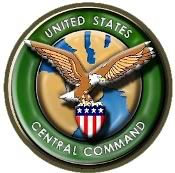Restraint or Overwhelming Force?
Shelby Steele makes the case for pulling out all the stops:
Rush spoke about this piece at length on his radio program today, and I think one would do well to read the entire piece before making any snap judgements.
I think the key point he makes is that we are the world's superior fighting force and we should be applying the lessons learned in World War II instead of the restraint that has become, more or less, the rule post-Vietnam.
We'll win regardless, but his point that we often exercise too much restraint as opposed to using the overwhelming force of which we are capable, I think is a fair observation to make: We can win this war as decisively or as methodically as we wish, the choice is ours!
Tags: Iraq, Terrorism, War on Terror, Military, Politics
There is something rather odd in the way America has come to fight its wars since World War II.
For one thing, it is now unimaginable that we would use anything approaching the full measure of our military power (the nuclear option aside) in the wars we fight. And this seems only reasonable given the relative weakness of our Third World enemies in Vietnam and in the Middle East. But the fact is that we lost in Vietnam, and today, despite our vast power, we are only slogging along--if admirably--in Iraq against a hit-and-run insurgency that cannot stop us even as we seem unable to stop it. Yet no one--including, very likely, the insurgents themselves--believes that America lacks the raw power to defeat this insurgency if it wants to. So clearly it is America that determines the scale of this war. It is America, in fact, that fights so as to make a little room for an insurgency.
Certainly since Vietnam, America has increasingly practiced a policy of minimalism and restraint in war. And now this unacknowledged policy, which always makes a space for the enemy, has us in another long and rather passionless war against a weak enemy.
Rush spoke about this piece at length on his radio program today, and I think one would do well to read the entire piece before making any snap judgements.
I think the key point he makes is that we are the world's superior fighting force and we should be applying the lessons learned in World War II instead of the restraint that has become, more or less, the rule post-Vietnam.
We'll win regardless, but his point that we often exercise too much restraint as opposed to using the overwhelming force of which we are capable, I think is a fair observation to make: We can win this war as decisively or as methodically as we wish, the choice is ours!
Tags: Iraq, Terrorism, War on Terror, Military, Politics































<< Home